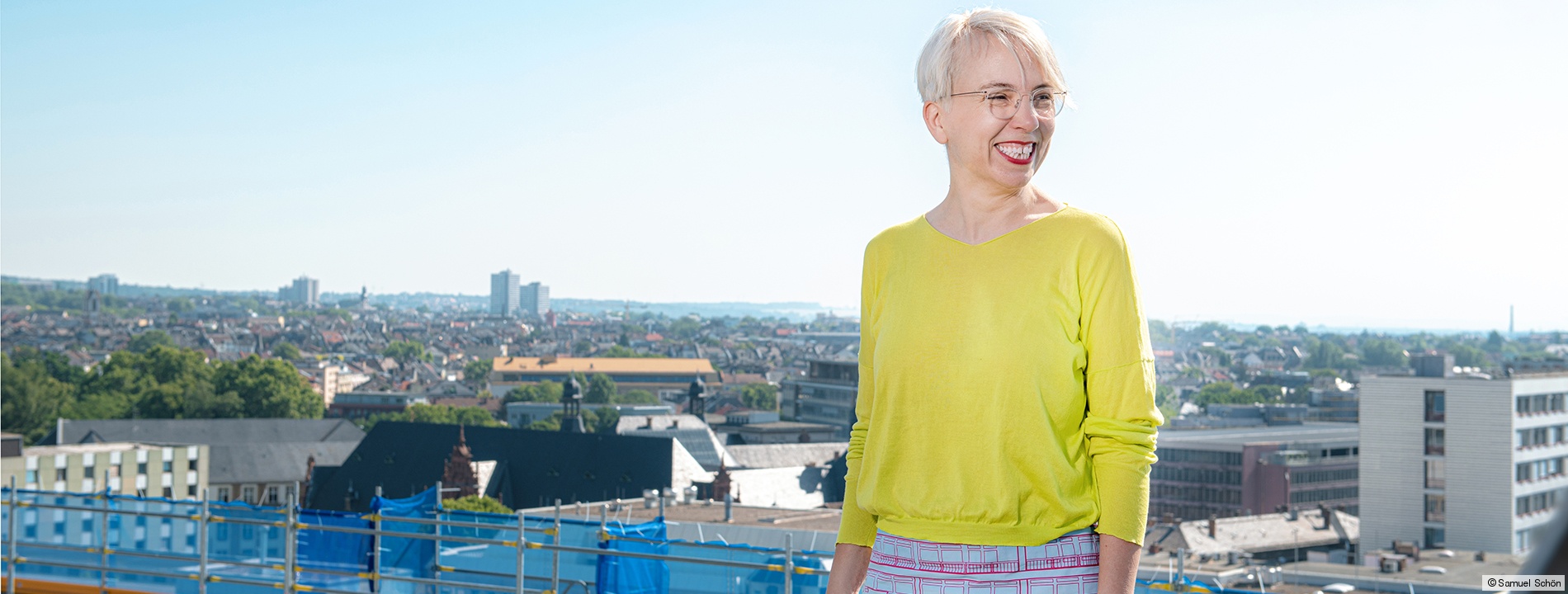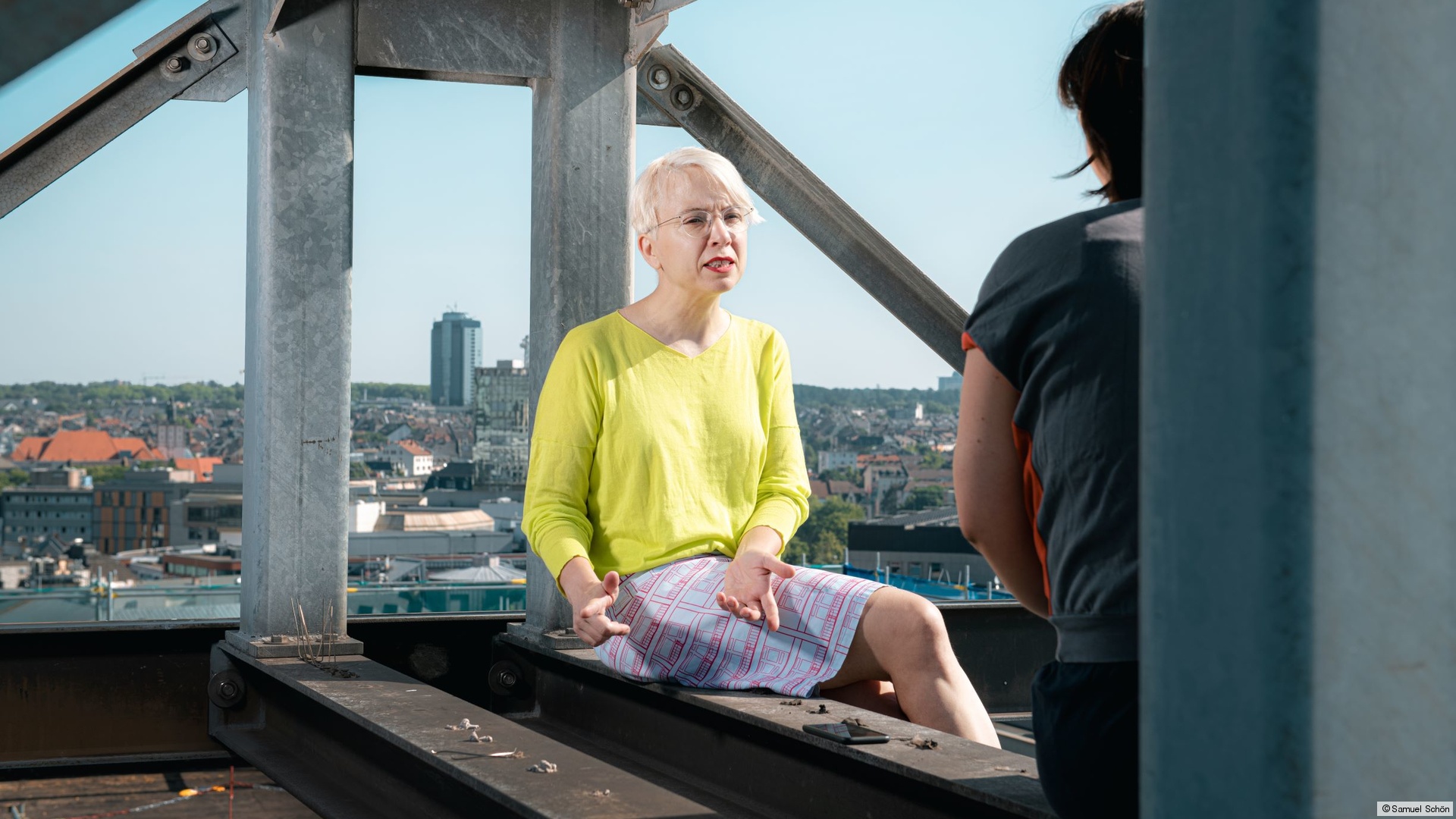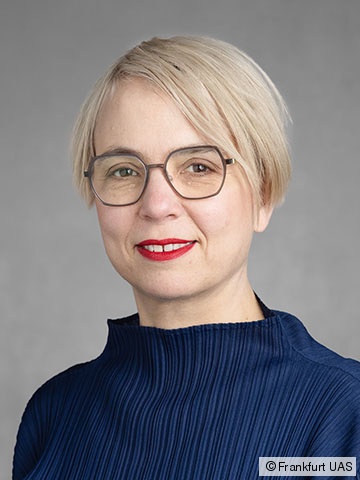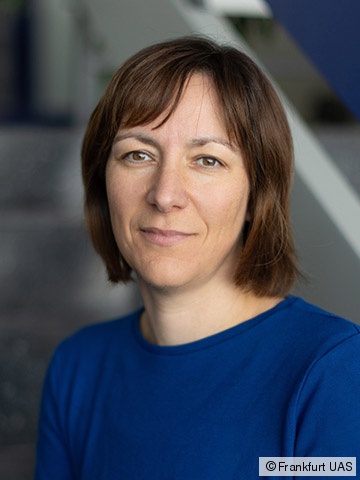The Innovation Project
Prof. Dr. Harnack uses the innovation professorship to intensify her research on affordable housing and resource-saving urban development. As part of the project, she would like to develop new urban concepts and test them in the Rhine-Main metropolitan region. Their goal is to develop clues for a more conscious form of urban development. To this end, she is planning, among other things, regional networking with other universities, the expansion of practice-oriented research cooperation and the development of innovative forms of communication in order to communicate urban development topics in a generally understandable way.
In Conversation with Prof. Dr. Maren Harnack
Ms Harnack, what is your innovation professorship about?
I've always been interested in residential construction of the late post-war modern era, i.e. the 1960s and 1970s. I am fascinated by the idea behind it - the way of living together and the necessary basic equipment. The conception of the buildings and settlements shows that they were built with a sense of community. People have thought about how people come together and how apartments have to be organized so that they can be used flexibly. Based on these ideas, the innovation professorship is about the following questions: Which apartments do we need today, for whom and where can we find them? How can we make better use of what we already have? And also: How can we live well with less?
What specific research projects are you pursuing?
There are two teaching projects. First, a student works on a master's thesis about the city of Rüsselsheim. There are 120 hectares of inner-city areas that have become vacant because the car manufacturer Opel is withdrawing. The city does not have access to these areas because they did not get a chance in the bidding process. And at the same time, these areas are very important for the city - especially with regard to sustainable development when Opel no longer plays such an important role. In a second teaching research project, students will examine the Günthersburghöfe project in Frankfurt's north end. A lot was actually done right in this neighborhood project and it still failed. The students will deal with the question of where breaks occurred in the project that ultimately brought it down. I'm in the process of addressing all the actors and asking if the students can contact them. This project is very time-consuming to prepare. I couldn't do that if I didn't have the relief of the innovation professorship.
You chose this place – the roof of the Beehive House at the Konstabler Wache – to talk about your innovation project. Why?
What I love about this place and my apartment is that you have a view of a huge resource from up here. We see a lot of roofs, some have building services on them. But many other roofs are empty. We cannot simply leave this resource to the market; we have to think about it differently. Wouldn't it be forward-looking to build apartments on the roofs of office and department stores in downtown Frankfurt? This is exactly what was done in this house from the 1950s, and the result is a kind of holiday village in the middle of the city.
Is your innovation professorship personally relevant to you?
I do all this because it really interests me. My privilege as a professor is that I get paid for what I love to do anyway. It is very fortunate that I can do such a job in such a place.
Thank you for the interview!
Since April 1, 2024, Prof. Dr. Maren Harnack has been Vice President for Studies and Teaching at the Frankfurt UAS. Her innovation professorship has been overtaken by Prof. Dr.-Ing. Jan Dieterle and Prof. Dr.-Ing. Paola Alfaro-d'Alençon.




